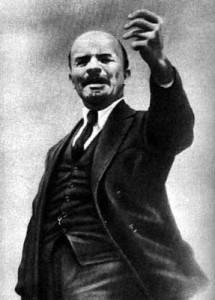 by V. I. Lenin, July 11, 1919. First Published: Pravda No. 15, January 18, 1929. Source: Lenin’s Collected Works, 4th English Edition, Progress Publishers, Moscow, 1972 Volume 29, pages 470-488.
by V. I. Lenin, July 11, 1919. First Published: Pravda No. 15, January 18, 1929. Source: Lenin’s Collected Works, 4th English Edition, Progress Publishers, Moscow, 1972 Volume 29, pages 470-488.
Comrades, according to the plan you have adopted and which has been conveyed to me, the subject of today’s talk is the state. I do not know how familiar you are already with this subject. If I am not mistaken your courses have only just begun and this is the first time you will be tackling this subject systematically. If that is so, then it may very well happen that in the first lecture on this difficult subject I may not succeed in making my exposition sufficiently clear and comprehensible to many of my listeners. And if this should prove to be the case, I would request you not to be perturbed by the fact, because the question of the state is a most complex and difficult one, perhaps one that more than any other has been confused by bourgeois scholars, writers and philosophers. It should not therefore be expected that a thorough understanding of this subject can be obtained from one brief talk, at a first sitting. After the first talk on this subject you should make a note of the passages which you have not understood or which are not clear to you, and return to them a second, a third and a fourth time, so that what you have not understood may be further supplemented and elucidated later, both by reading and by various lectures and talks. I hope that we may manage to meet once again and that we shall then be able to exchange opinions on all supplementary questions and see what has remained most unclear. I also hope that in addition to talks and lectures you Will devote some time to reading at least a few of the most important works of Marx and Engels. I have no doubt that these most important works are to be found in the lists of books and in the handbooks which are available in your library for the students of the Soviet and Party school; and although, again, some of you may at first be dismayed by the difficulty of the exposition, I must again warn you that you should not let this worry you; what is unclear at a first reading will become clear at a second reading, or when you subsequently approach the question from a somewhat different. angle. For I once more repeat that the question is so complex and has been so confused by bourgeois scholars and writers that anybody who desires to study it seriously and master it independently must attack it several times, return to it again and again and consider it from various angles in order to attain a clear, sound understanding of it. Because it is such a fundamental, such a basic question in all politics, and because not only in such stormy and revolutionary times as the present, but even in the most peaceful times, you will come across it every day in any newspaper in connection with any economic or political question it will be all the easier to return to it. Every day, in one context or another, you will be returning to the question: what is the state, what is its nature, what is its significance and what is the attitude of our Party, the party that is fighting for the overthrow of capitalism, the Communist Party—what is its attitude to the state? And the chief thing is that you should acquire, as a result of your reading, as a result of the talks and lectures you will hear on the state, the ability to approach this question independently, since you will be meeting with it on the most diverse occasions, in connection with the most trifling questions, in the most unexpected contexts and in discussions and disputes with opponents. Only when you learn to find your way about independently in this question may you consider yourself sufficiently confirmed in your convictions and able with sufficient success to defend them against anybody and at any time.











